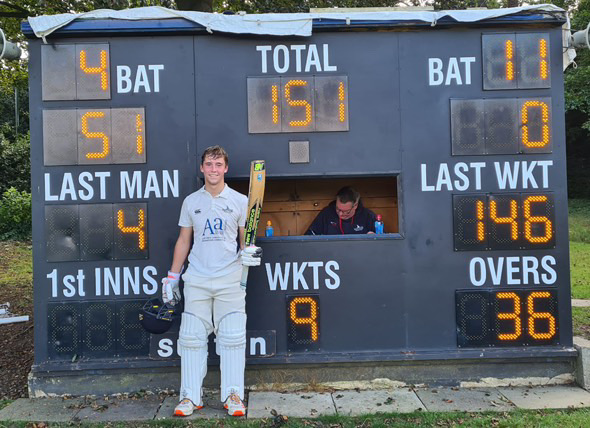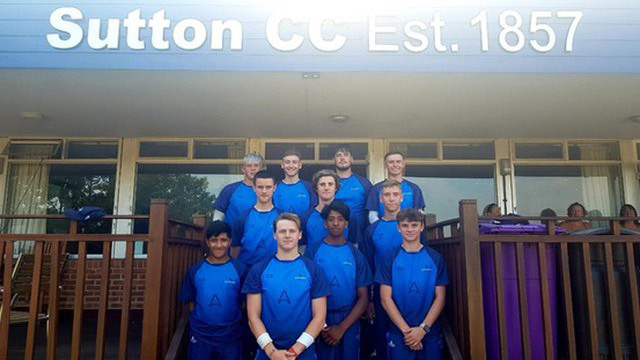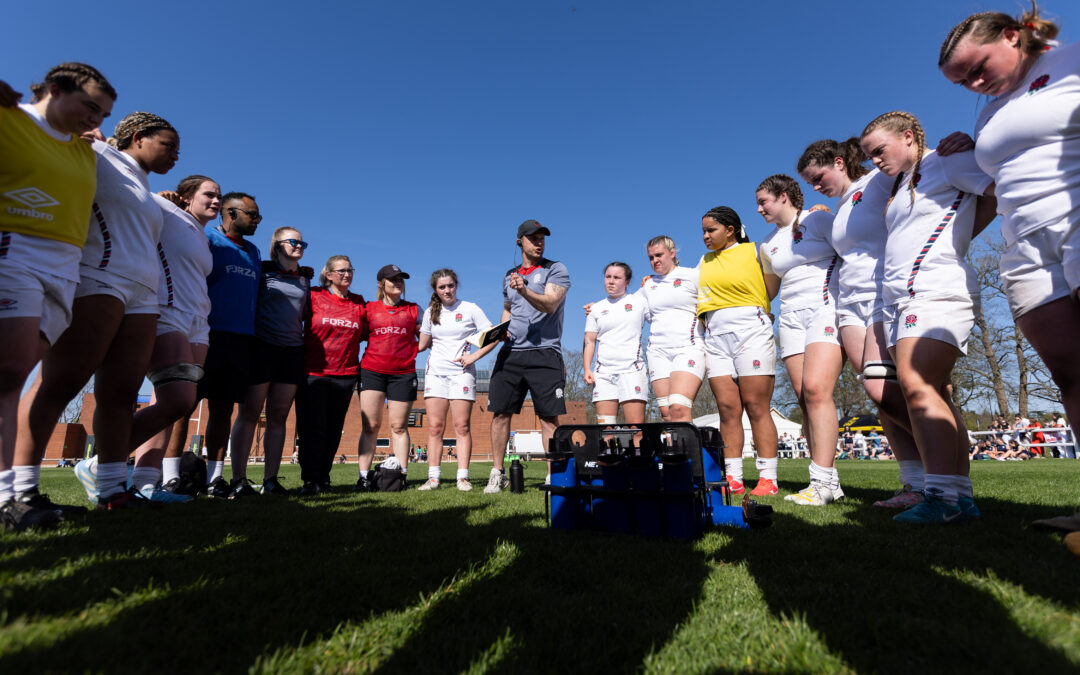Clubs don’t just make players, but coaches too. Sidelines explores how the pathway from student to master helps the cricket ecosystem grow and thrive.
“At age seven, I knew I wanted to be a coach,” says George Duckworth, coach at Sutton Cricket Club. “At age 13, I started helping with the kids at the club on a Friday night after school. Now, I’m head coach of the women’s and girls teams.”
Duckworth, 21, played his first cricket match at Sutton Cricket Club at just six years old, but has been going to the club with his dad since the day he was born.
Now a head coach, Duckworth has been supported by Sutton Cricket Club through his evolution from a young, enthusiastic player to a successful and respected coach.

“They’ve always supported me and all the other coaches we’ve got down at the club. Whether it be paying for the coaching courses to go on, offering coaching sessions, or giving you promotions to help improve your coaching skills. They’ve always been dedicated to help grow good coaches.”
The Surrey-based club has been running since 1857, with grassroots teams available for children as young as five years old. Grassroots cricket heavily relies on volunteers, many of whom transition from players to coaches. According to the England and Wales Cricket Board (ECB), their 2025 to 2028 strategy emphasises enhancing the volunteer experience to support this progression.
Sutton Cricket Club has nurtured Duckworth from the very first time he held a cricket bat. Now, as a result of their dedication, time and resources, he gets to witness the rewards that come with being a coach himself. Watching players improve and reach the top of a sport is a niche experience, reserved for the ones who helped them get there.
“One of my proudest coaching moments was last year. The team had been promoted the year before I was appointed as head coach. A standout moment for me was when we got our first win in the new league.
“Just two weeks ago, a girl that Sutton Cricket has coached since she was seven scored her first 100 for the club. She’s also playing for Surrey second level, and she’s only 18 years old. That’s another very proud moment.”
How volunteers help grow women’s cricket
Women’s cricket is on the rise. The ECB announced that one thousand new women’s and girls’ teams were established across England and Wales in 2024, marking a 25% increase in women’s teams and a 21% rise in girls’ teams compared to 2023.
The number of women playing cricket at the grassroots level in England has surged by 54% since 2014, with over 2,000 clubs now hosting women’s teams. This wouldn’t be possible without the clubs who foster young talent and keep them in the sport long enough to become coaches.
“Last year was my first year having taken over the women’s team. In a year, we’ve over doubled the size of the members we’ve got in the women’s section. My goal is to keep recruiting players to grow the team to the biggest size possible,” says Duckworth.
Away from coaching, Duckworth works in a primary school as a physical education and cover teacher. Encouraging teachers to be involved with cricket is supported by the ECB, who announced a £3.5 million investment to train teachers and provide free cricket engagement. The initiative aims to boost weekly youth cricket participation by 10% and build 450 new cricket facilities in urban communities by 2027.
But balancing teaching, coaching and playing cricket himself, is no challenge for Duckworth. With such a love for coaching and cricket in general, he says the rewards of the job make it all worth it.
“When you see not only improvements in the training sessions, but they take that into the match, and they start scoring runs, that’s really rewarding. I have players that I’ve coached come and tell me something they’ve done that they’re proud of. That helps build that desire to want to help them.
“You spend time planning all the sessions, working hard, explaining things in a way that will help them, and they’re putting in all the time as well. You both see the rewards, and it’s really nice to see.”


As for advice for other budding coaches? Just get involved.
“Be involved in your sports club in any way possible, even if you’re in a voluntary position like I was in the beginning. You eventually just learn different skills. I found that teaching other people helps my game massively as well. You then understand your own game slightly more.”
Sidelines Recommends

Planting the seeds of the Red Roses: England Women’s rugby development
Ahead of the 2025 Women’s Rugby World Cup, England U18s Head Coach James Cooper tells Sidelines how he develops players for international glory.

From the scrum to the sidelines: Tom Woolstencroft exclusive
Sidelines spoke exclusively to ex-Saracens front-rower Tom Woolstencroft about the challenges of switching from player to coach.

The “unforgettable experience” of the Wimbledon Queue
Combine queueing and Wimbledon, and you get the most British experience possible – but none of it would be possible without the stewards.




